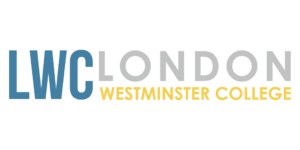L4 Extended Diploma in Accounting
The ATHE Level 4 Extended Diploma in Accounting has been designed to develop the essential understanding and skills needed to provide the awareness of the accountancy and tax regulatory environment, the operational requirements for the accounting and finance function and what is expected of a professional accountant.
The Level 4 Extended Diploma in Accounting is available as a 120-credit qualifications and are graded Pass, Merit or Distinction. The qualification are on Ofqual’s Regulated Qualifications Framework (RQF) and has a Qualification Number (QN). This number will appear on the learner’s final certification documentation.
The QN numbers for the qualification is as follows:
ATHE Level 4 Extended Diploma in Accounting 603/4851/3
By completing the Level 4 Extended Diploma in Accounting, and the Level 5 Extended Diploma in Accounting with at least three years’ experience within the accounting sector, learners will be eligible for Associate Membership of the Institute of Financial Accountants (IFA) by completing just two further modules.
The IFA is an internationally recognised professional accountancy membership body. It is a full member of the International Federation of Accountants (IFAC) the global accounting standard-setter and regulator. Further details can be obtained from the IFA. www.ifa.org.uk.
John Edwards, CEO of the IFA, states:
“We’re delighted to be working with ATHE and providing a route to membership of the IFA for their learners.
“Those who successfully complete and pass the level 4 and 5 accounting qualifications will be eligible to become an IFA Associate member and call themselves a qualified Financial Accountant. Gaining membership of an internationally recognised professional accountancy body which is a member of the International Federation of Accountants will enhance both your personal and professional recognition and career.”
-
301 Assurance
- 302 Advanced Taxation

Core Modules;
Unit 1: Financial Accounting 1
Unit 2: Financial Accounting 2
Unit 3: Budgetary Control
Unit 4: Cost and Management Accounting
Unit 5: Personal Taxation
Unit 6: Business Environment
Unit 7: Economics for Business
Unit 8: Law for Accounting
Methods of Assessment
LWC is encouraged to use a range of assessment vehicles that will engage learners and give them an opportunity to both demonstrate their knowledge and understanding of a topic and to evaluate how they might apply that knowledge in a given context. This should be part of the assessment strategy.
We would recommend avoiding essay writing and that more varied types of assessment are included. This might include assessment through:
• a research activity resulting in the compilation of a report
• an academic paper or article for publication
• the compilation of a case study
• a critical review and evaluation of a chosen company’s policies, procedures and systems
• a set project completed for an employer (also known as an ‘employer-engagement’ activity)
• the production of a portfolio of evidence relating to a particular unit.

For more information, contact us:

-
ATHE, UK
- L4 Diploma in Business and Management
- L5 Diploma in Business and Management
- L6 Diploma in Management
- L7 Extended Diploma in Strategic Management (MBA Pathway)
- L4 Extended Diploma in Accounting
- L5 Extended Diploma in Accounting
- L4 Diploma in Management for Travel and Tourism
- ATHE Progression Route
